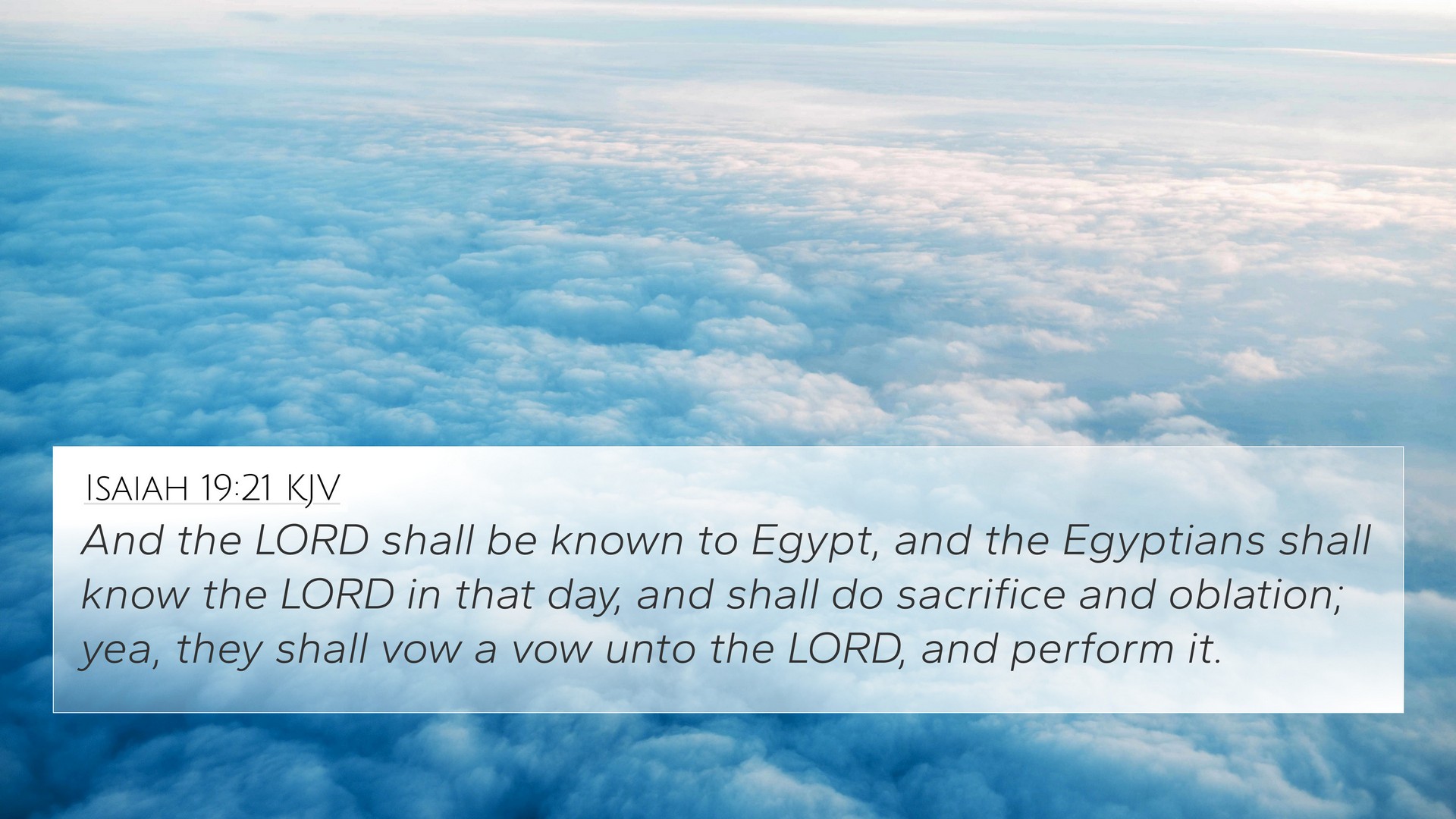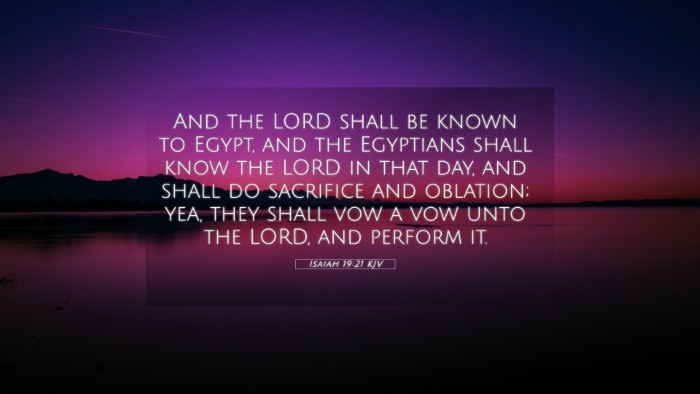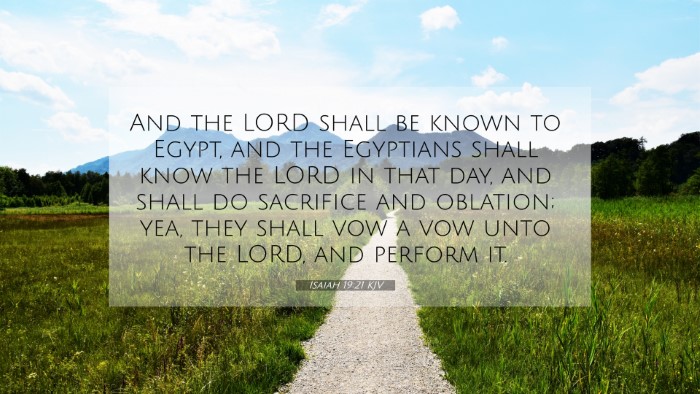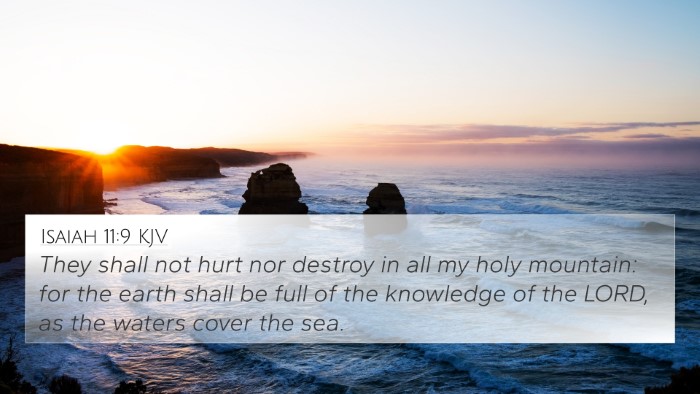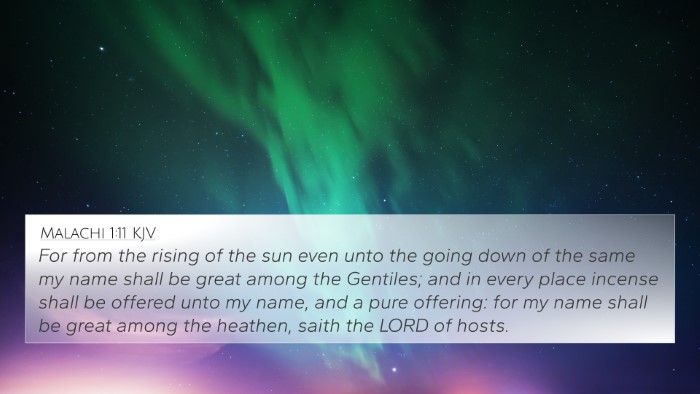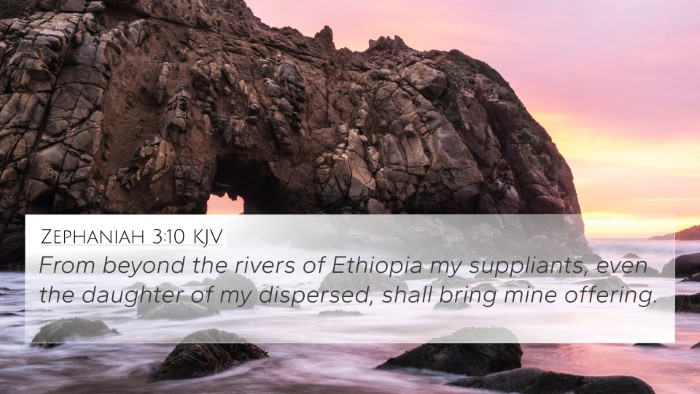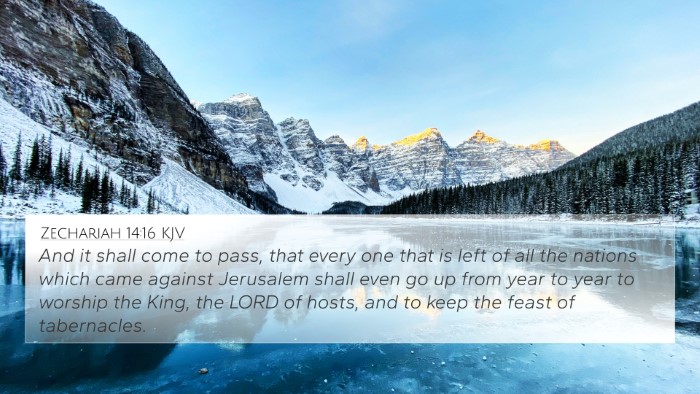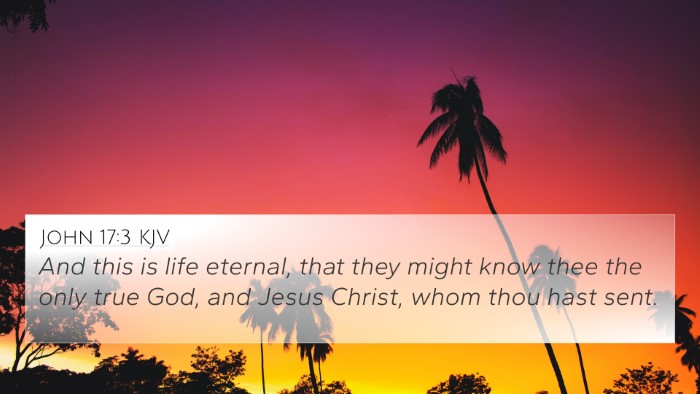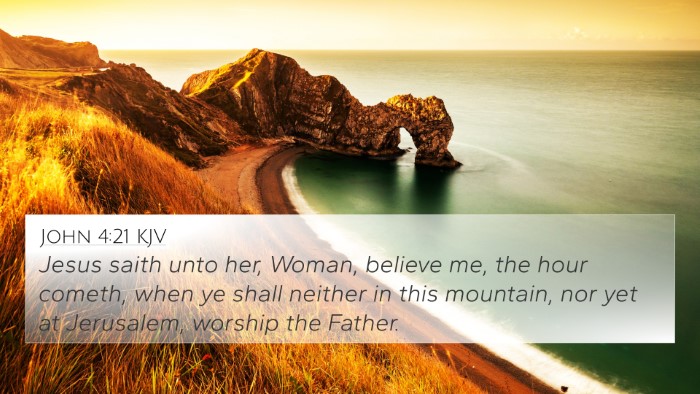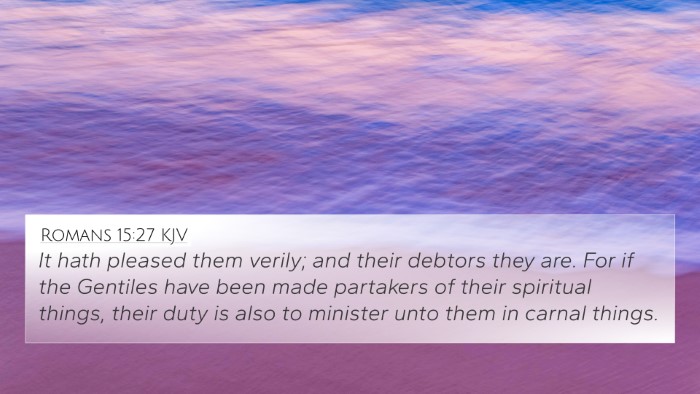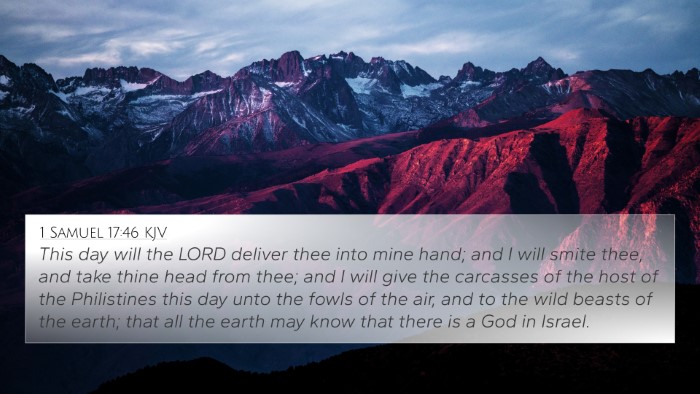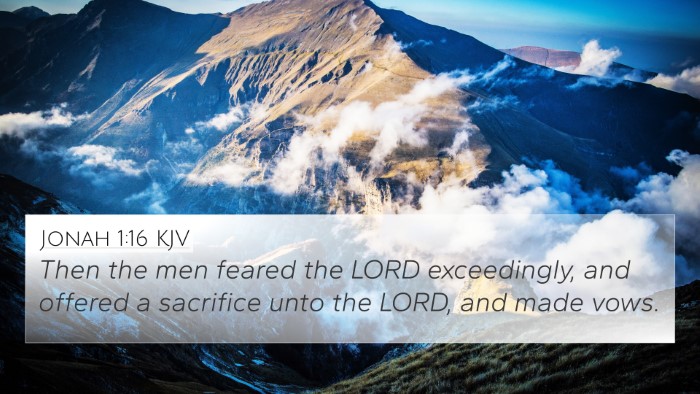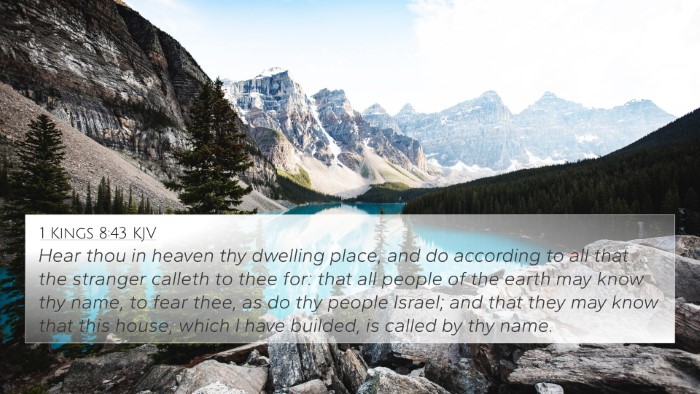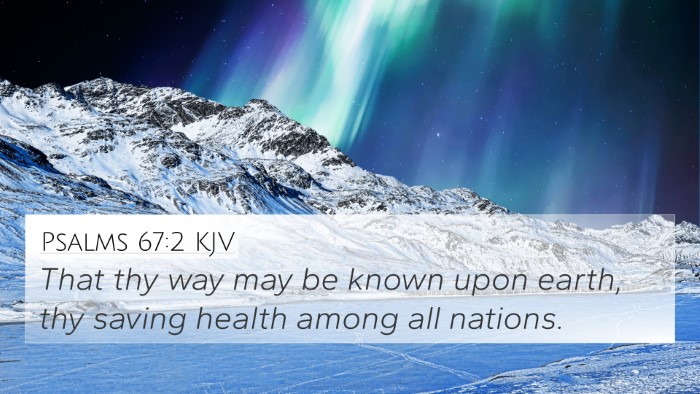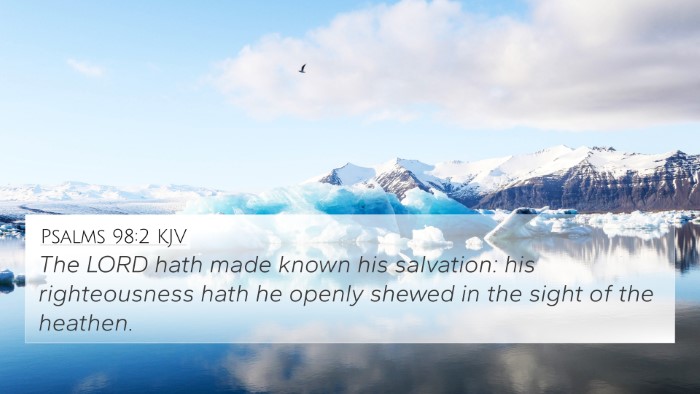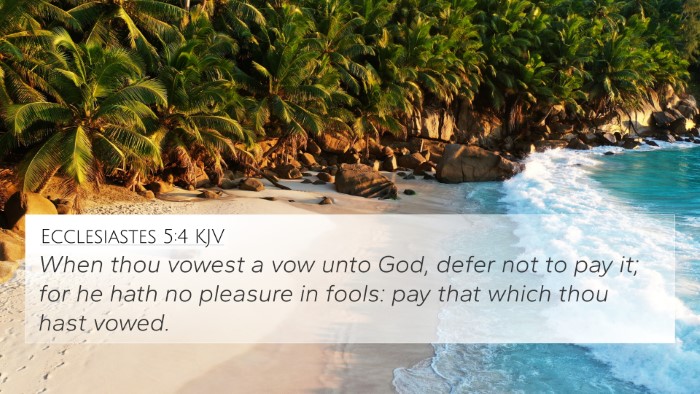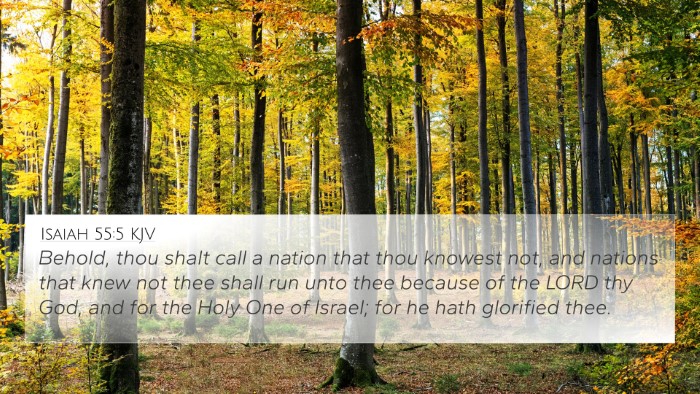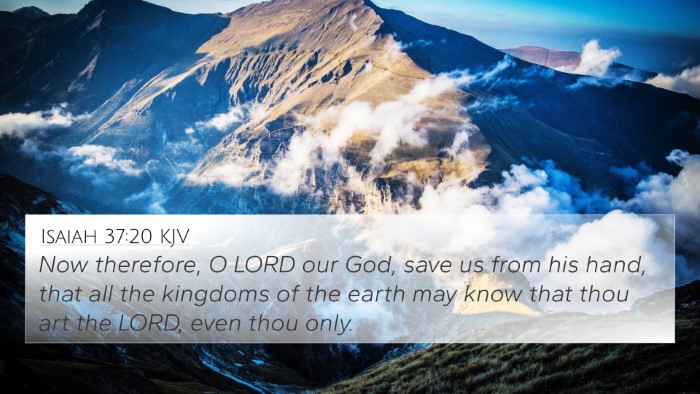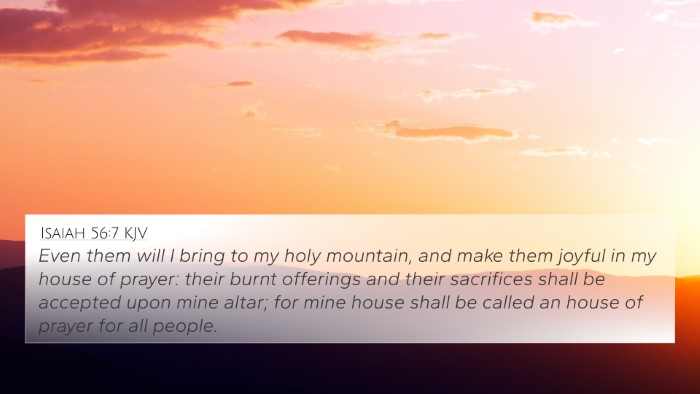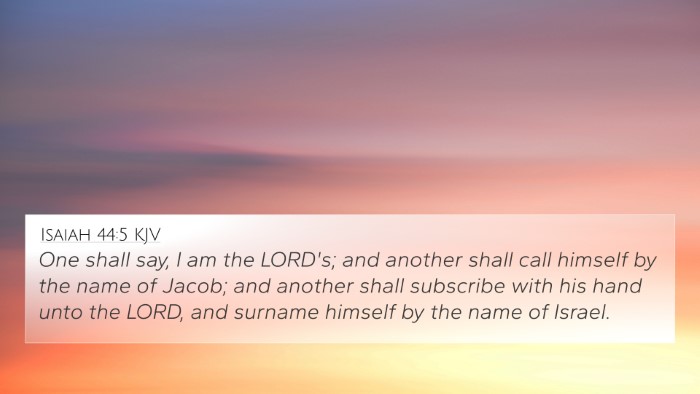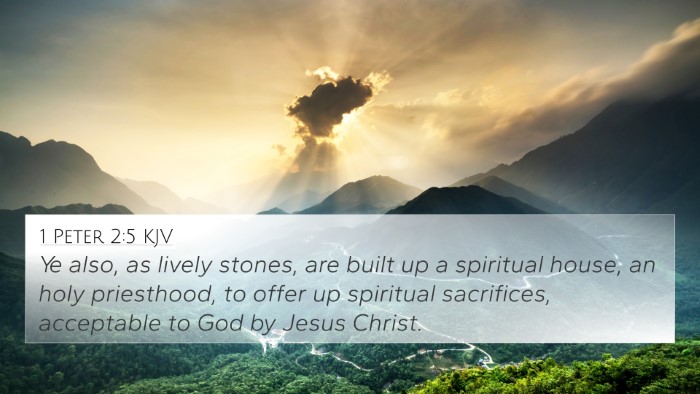Understanding Isaiah 19:21
Isaiah 19:21 reads:
“And the LORD shall be known to Egypt, and the Egyptians shall know the LORD in that day, and shall do sacrifice and oblation; yea, they shall vow a vow unto the LORD, and perform it.”
In this verse, the prophet Isaiah speaks profoundly about the future recognition and worship of the LORD among the Egyptians, indicating a time when their relationship with God will undergo a significant transformation. This pivotal moment reflects a broader theme of restoration and divine acknowledgment.
Summarized Insights from Public Domain Commentaries
Matthew Henry's Commentary
Matthew Henry highlights the transition of Egyptian hearts towards God, emphasizing the day when the Egyptians will not only recognize the Lord's sovereignty but will actively participate in religious practices, such as sacrifices and vows. Henry insists that this represents God’s merciful intention towards nations previously estranged from Him, showcasing His desire for all to come to repentance and worship.
Albert Barnes' Notes
Albert Barnes elaborates on the significance of the Egyptians’ acknowledgment of the LORD, interpreting this event as a fulfillment of God’s promises to all nations, illustrating a moment when they turn from paganism to true worship. His note on the sacrificial practices indicates an impending spiritual revival, whereby the Egyptians shall engage solemnly in covenant agreements with God.
Adam Clarke's Commentary
Adam Clarke elaborates on the theological implications of this verse, interpreting it as a prophetic insight into the time of the Messiah. He suggests that the knowledge of the LORD among Egyptians symbolizes a greater promise of inclusion for all peoples in the plan of salvation, foreshadowing the New Covenant.
Key Themes and Cross-References
This verse touches upon several pivotal themes in Scripture, including divine revelation, covenant relationships, and inter-nation acknowledgment of God. Below are several references that relate closely to Isaiah 19:21:
- Isaiah 19:16-17 - Discusses Egypt’s fear of the LORD and the acknowledgment that follows.
- Joel 2:32 - Speaks of the call for all nations to call upon the name of the LORD for salvation.
- Zechariah 14:16-19 - Talks about the nations coming to worship the King, the LORD of hosts.
- Romans 11:26 - Discusses the inclusion of all Israel, linking to the broader theme of salvation for the nations.
- Matthew 28:19-20 - The Great Commission emphasizes the call to make disciples of all nations.
- Acts 10:34-35 - Peter states that God shows no favoritism but accepts people from every nation.
- Revelation 5:9 - Portrays the redeemed from every tribe and language, highlighting inclusivity in worship.
Conclusion and Interpretation
Isaiah 19:21 serves as a powerful declaration of hope and redemption, illustrating God's overarching plan for all nations, including the Egyptians, to come to the knowledge of His truth and engage in authentic worship. The connections between this verse and its cross-references demonstrate the continuity of God's redemptive narrative throughout the Scriptures.
By utilizing tools for Bible cross-referencing and examining these links, one can grasp deeper insights into God’s nature and His desire for all peoples to enter into a faith-filled relationship with Him. The process of cross-referencing enhances understanding, providing a richer context for interpreting Biblical themes.
Keyword Integration for SEO
In examining the connections between Bible verses, Bible verse cross-references are invaluable. They allow one to identify how to find cross-references in the Bible effectively. Studying the linking Bible scriptures across both the Old and New Testaments reveals the thematic Bible verse connections that reflect God’s plan through the ages. Additionally, employing a Bible concordance can help believers explore cross-referencing Bible study methods and uncover Bible verses that relate to each other, enriching their understanding of God's intentions.
The insights provided in commentaries from respected Biblical scholars highlight the transformative power of divine acknowledgment and worship, offering a pathway for believers to deepen their understanding of the Scriptures through comparative Bible verse analysis.
